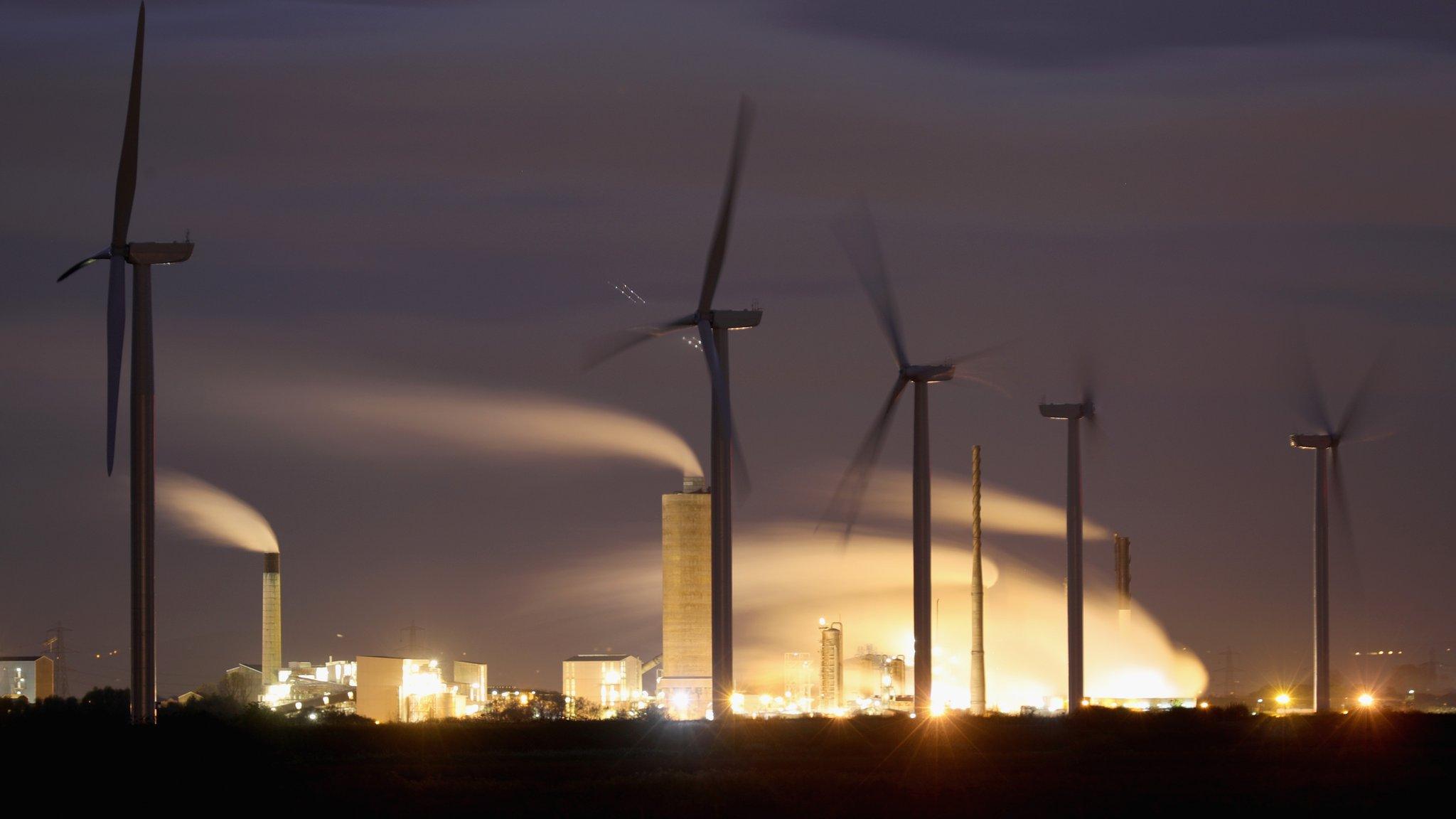MPs criticise government clean energy policies
- Published
- comments
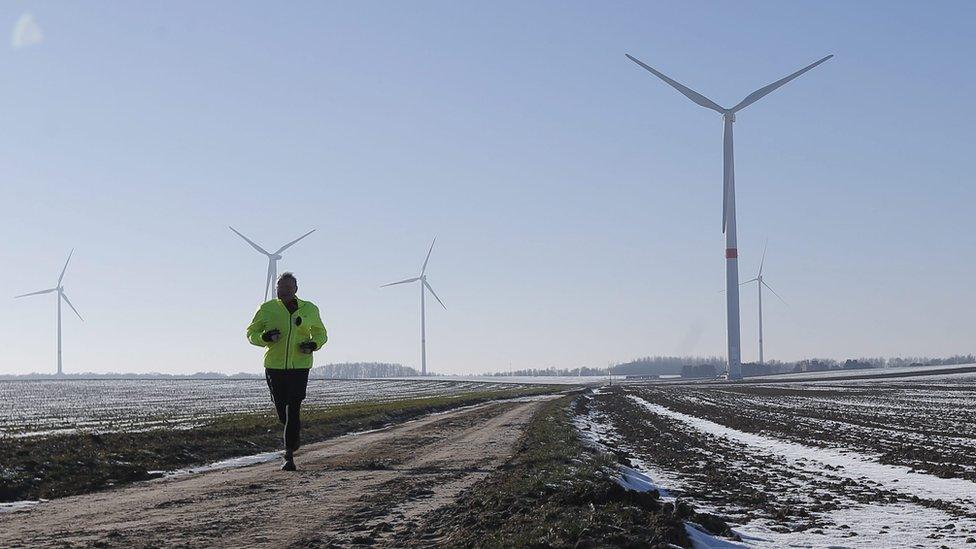
Heavy criticism has been levelled at UK government energy policies by two separate parliamentary committees.
The Environmental Audit Committee says ill-thought out policies caused a dive in clean energy investment, which fell 10% in 2016, and 56% last year.
And the Public Accounts Committee says a government scheme to encourage clean heat is a failure that often produces dirty heat.
The government says it is determined to meet its climate change targets.
Investment in clean energy in the UK has slumped following a fusillade of changes to government policy.
These include:
Withdrawing support for new onshore wind farms in mainland UK
Withdrawing subsidies from solar
Taxing renewables
Selling the Green Investment Bank;
Dumping the Zero Carbon Homes policy;
Cancelling the £1bn Carbon Capture & Storage competition.
Annual clean energy investment in the UK is now the lowest it has been since 2008 and the rate of installation for new renewables capacity is slowing.
The fall has been offset somewhat by the plummeting cost of renewables, which is allowing the UK to get more power per pound spent.
And the proportion of UK electricity generated from low-carbon sources, including nuclear, has doubled between 2009 and 2017, to reach a record 50% last year.
The MPs say they are encouraged by the government's long-term green growth strategy but warn that policies are not strong enough to meet legal climate change targets.
The Oxford Sustainable Finance Programme described the challenge as "the most capital-intensive transition in human history" and said that in this process "the availability of low-cost capital, particularly for low-carbon infrastructure and technology, is key".
'Wildly optimistic'
The Environmental Audit Committee chair, Mary Creagh, said: "Billions of pounds of investment is needed in clean energy, transport, heating and industry to meet our carbon targets. But a dramatic fall in investment is threatening the government's ability to meet targets.
"The government must urgently plug this policy gap and publish its plan to secure the investment required."
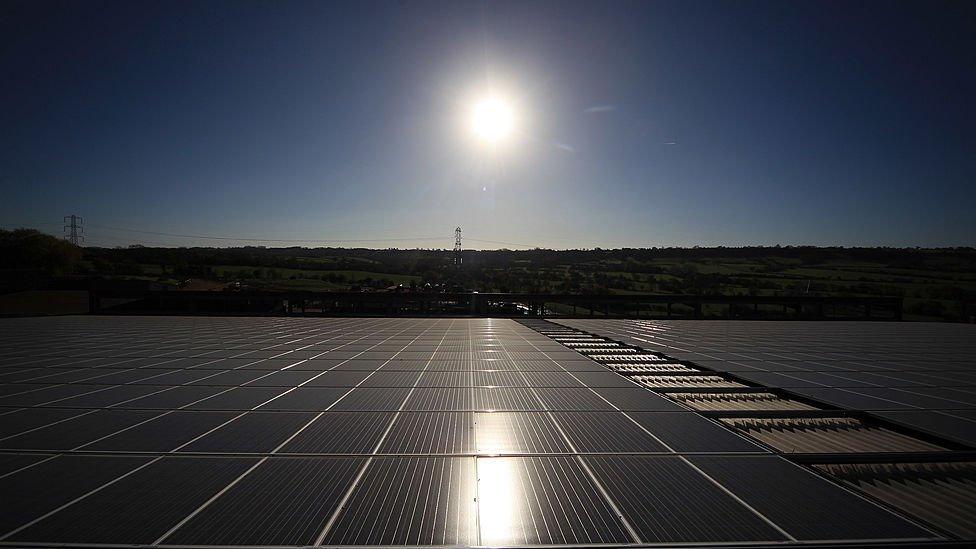
Meanwhile the Public Accounts Committee has been examining the government's renewable heat incentive - designed to reduce dependency on fossil fuel for heating by using wood-fuel boilers instead.
MPs say the government's forecasts for the scheme were "wildly optimistic".
The boilers are too big for the average home and they cost too much for the average family. The result is that the amount of renewable heat produced is only a third of the level forecast, and carbon cuts are 50% of the anticipated level.
The committee complains that some boilers create local air pollution - but it says that the government hasn't properly monitored that.
The industry department is now rethinking its future policy on low-carbon heating.
The government said it should get credit for introducing a system that cut the cost of renewables by obliging firms to bid for contracts to supply electricity at a guaranteed price
This has resulted in a huge fall in the cost of energy especially from offshore wind, and the system has been copied by other nations.
A spokesperson for the department for Business, Energy and Industrial Strategy said it would consider "this report carefully" and respond in due course.
"The UK is a world-leader in cutting emissions, with 50% of our electricity coming from low-carbon sources and recently going 72 hours without burning coal.
"We're committed to meeting our climate change targets and will have invested £2.5 billion on low carbon innovations by 2021," the spokesperson said.
Correction 1 August 2018: An earlier version of this article said that the government had introduced a ban on onshore windfarms. This was amended to refer to an "effective" ban and amended again on 26 July to clarify changes in policy since the article was published.
A complaint about the inaccuracy was upheld by the BBC's Executive Complaints Unit., external
Follow Roger on Twitter @rharrabin
- Published24 April 2018
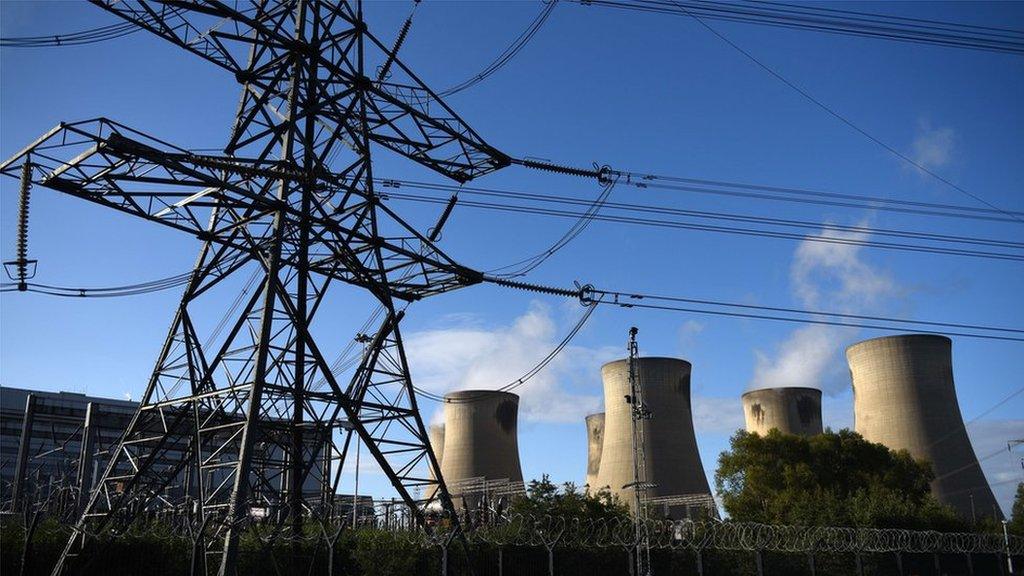
- Published21 February 2018

- Published26 September 2017
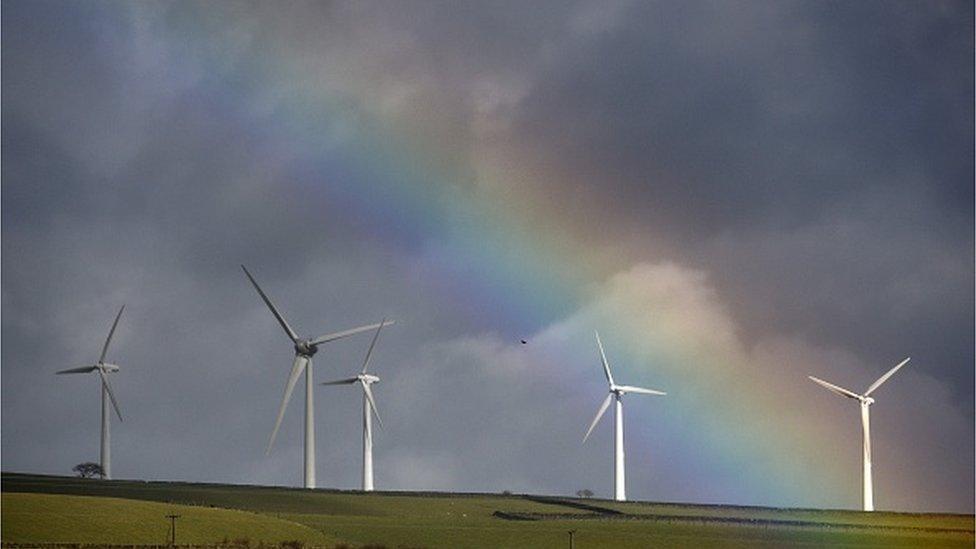
- Published11 September 2017
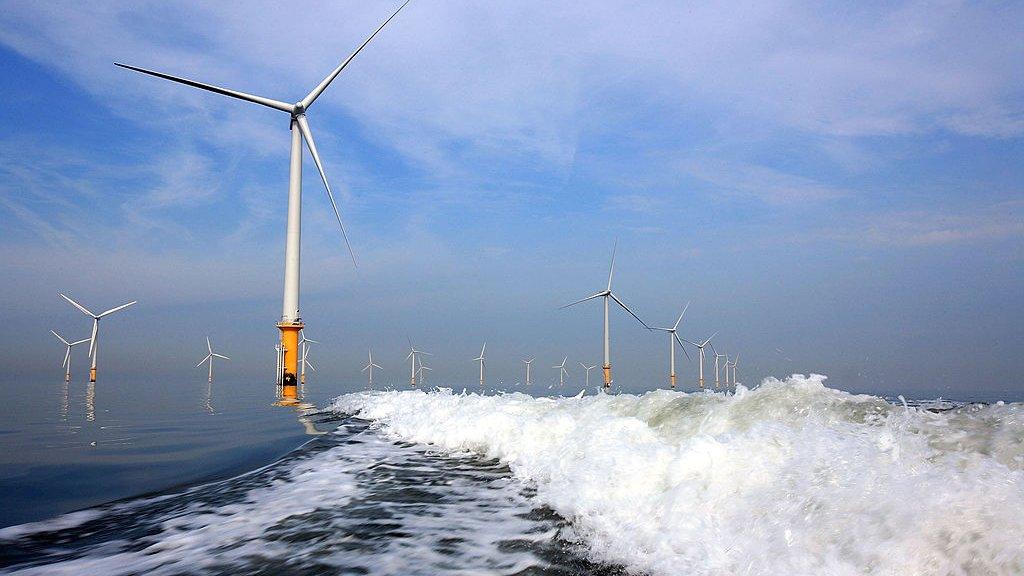
- Published8 June 2017

- Published3 June 2017
